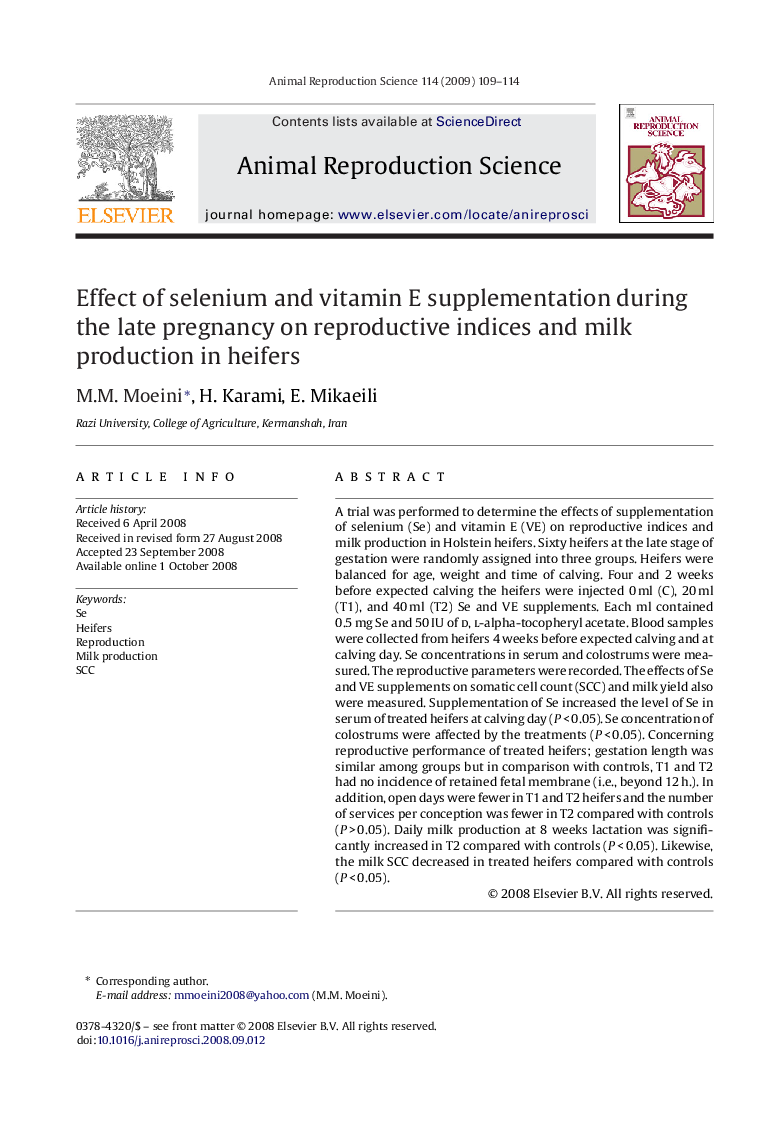| Article ID | Journal | Published Year | Pages | File Type |
|---|---|---|---|---|
| 2074206 | Animal Reproduction Science | 2009 | 6 Pages |
A trial was performed to determine the effects of supplementation of selenium (Se) and vitamin E (VE) on reproductive indices and milk production in Holstein heifers. Sixty heifers at the late stage of gestation were randomly assigned into three groups. Heifers were balanced for age, weight and time of calving. Four and 2 weeks before expected calving the heifers were injected 0 ml (C), 20 ml (T1), and 40 ml (T2) Se and VE supplements. Each ml contained 0.5 mg Se and 50 IU of d, l-alpha-tocopheryl acetate. Blood samples were collected from heifers 4 weeks before expected calving and at calving day. Se concentrations in serum and colostrums were measured. The reproductive parameters were recorded. The effects of Se and VE supplements on somatic cell count (SCC) and milk yield also were measured. Supplementation of Se increased the level of Se in serum of treated heifers at calving day (P < 0.05). Se concentration of colostrums were affected by the treatments (P < 0.05). Concerning reproductive performance of treated heifers; gestation length was similar among groups but in comparison with controls, T1 and T2 had no incidence of retained fetal membrane (i.e., beyond 12 h.). In addition, open days were fewer in T1 and T2 heifers and the number of services per conception was fewer in T2 compared with controls (P > 0.05). Daily milk production at 8 weeks lactation was significantly increased in T2 compared with controls (P < 0.05). Likewise, the milk SCC decreased in treated heifers compared with controls (P < 0.05).
